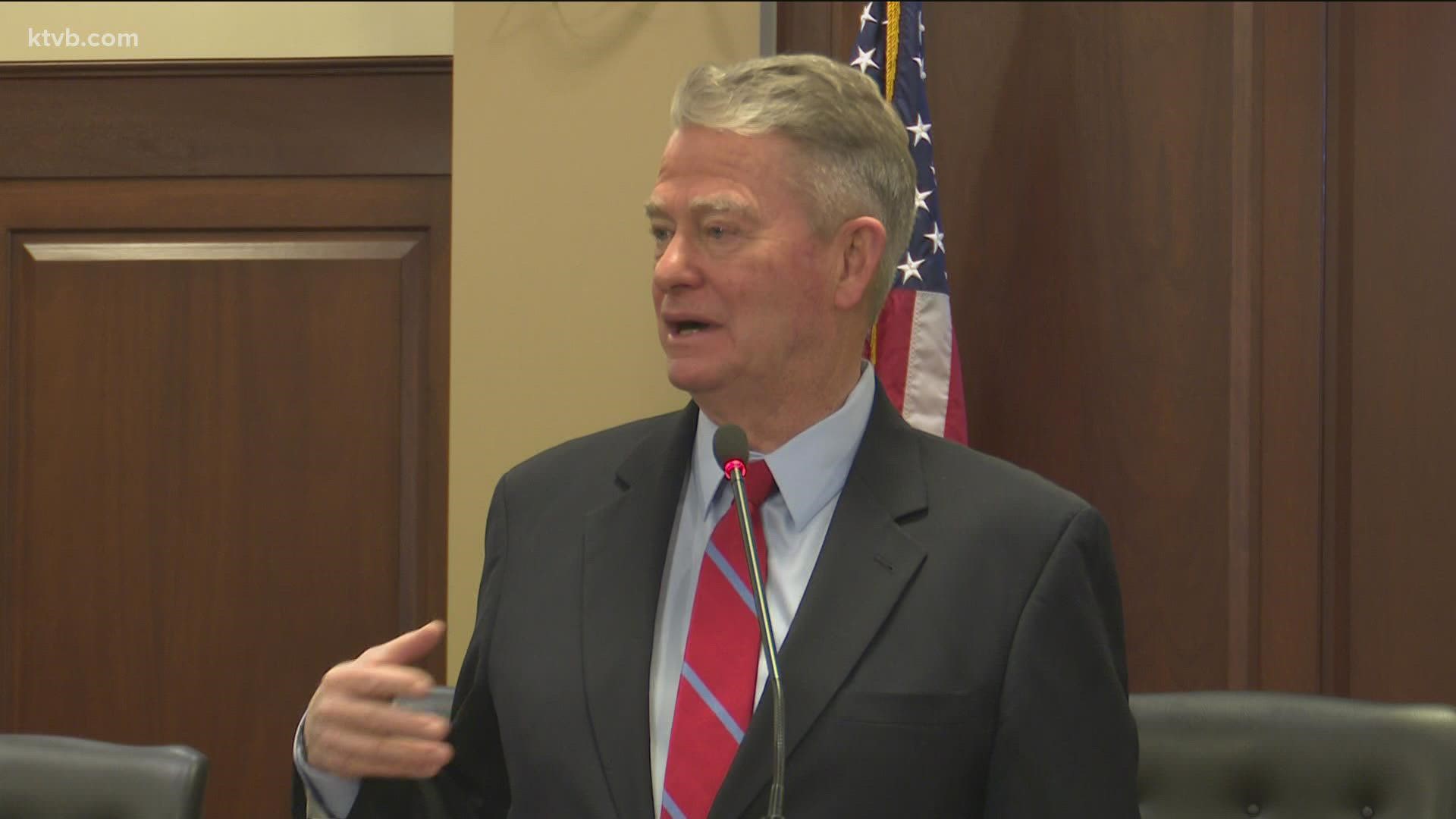BOISE, Idaho — Idaho Governor Brad Little on Tuesday announced Idaho's public health disaster emergency declaration will end April 15.
Gov. Little said the activation of the statewide public health emergency declaration enabled the Federal Emergency Management Agency (FEMA) to cover costs for the distribution of critical supplies.
Little signed the declaration March 13, 2020, at the start of the COVID-19 pandemic.
Each U.S. state since March of 2020 had a public health emergency declaration in place. According to a news release from Gov. Little Tuesday, FEMA covered $257 million in costs associated with the distribution of supplies such as ventilators and PPE, medical staffing, National Guard support, COVID-19 vaccine distribution and other needs.
The costs covered by FEMA would have been placed on the Idaho state budget or local governments, Little said. Only a state's governor is lawfully able to end an emergency declaration.
Gov. Little said his office has been "coordinating with stakeholders to minimize impacts and ensure hospitals" were prepared for the emergency declaration to end on April 15 for weeks.
According to a news release from Gov. Little, the emergency declaration allowed Idaho to have more nurses enter the workforce and expand telehealth services. Little said the declaration also covered costs for first responders, county management, funeral assistance, COVID-19 testing, a vaccine rollout and other resources for Idaho.
The Idaho Department of Health and Welfare (IDHW) will continue to provide information on COVID-19 in the Gem State and Coronavirus.Idaho.Gov remains as the primary resource for COVID-19 information in Idaho.
Gov. Little released the following statement Tuesday on ending Idaho's public health disaster emergency declaration April 15:
"I kept Idaho open, banned vaccine mandates, never issued mandates for vaccines or masks, and successfully challenged Biden's overreaching vaccine mandates in court.
"The emergency declaration served as an administrative function to recoup FEMA dollars for a variety of needs throughout Idaho. The emergency declaration never violated or restricted any rights of Idahoans, never put Idaho on lockdown, and never allowed for mandates for masks or vaccines. These are the facts.
"Without the emergency declaration we would not be able to provide historic tax relief, a step that's even more important now as gas prices and inflation soar. Without the emergency declaration, Idaho would not be the state with the strongest economy in the nation.
"We're hopeful the recent decrease in COVID-19 cases, hospitalizations, and deaths means we are on a downward trend with the pandemic. For weeks, we have been closely examining the needs within Idaho's healthcare system with an eye toward ending the public health emergency declaration as soon as possible. The April 15 timeframe provides an important bridge for hospitals and other healthcare providers to plan for the transition.
"I want to thank Idahoans, especially our medical community, first responders, public health officials, and National Guard volunteers for helping us reach this positive milestone."
Watch more Local News:
See the latest news from around the Treasure Valley and the Gem State in our YouTube playlist:

